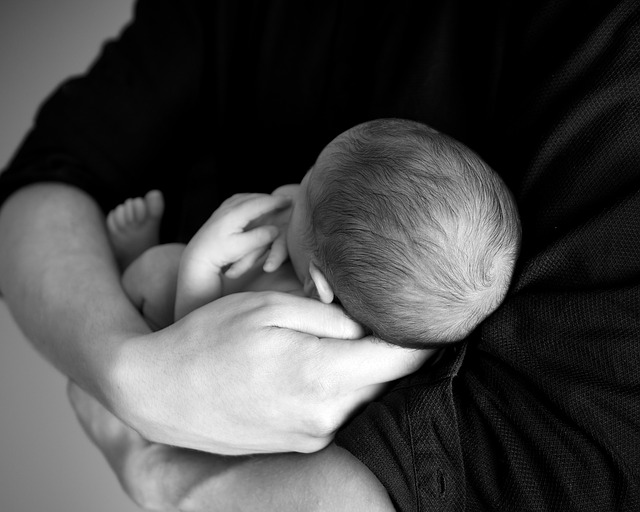You look into your little one’s eyes and there is a wide arrange of emotions and feelings. With a new baby comes new highs and lows. As a new mom, you have new expectations, needs, and emotions. You may feel like a total wreck and have yet to gather your footing. You may wonder, “Who am I?”, “Will I get back the old me?”, or “When will I get it together?” Your motherhood journey may be rocky, smooth, or curvy. Sometimes you may be crying, laughing, or feeling angry/defeated/not enough. You may switch from one emotion to the next and find yourself thinking, “what is wrong with me”. Be encouraged, this is all a normal part of the new mom adjustment.
There can be division in the home, resentment, jealousy, and withdrawal. It can be hard to find a healthy work-life balance. You may feel like you are juggling way too much: home life, work, relationships, marriage, and your own sanity. You have to learn how to meet the needs of your new little one, your partner and of course yourself. Many times in the daily mom hustle and bustle taking care of you is what lacks the most.
It is a necessity to learn how to care for yourself if you want to keep a handle on things. When self-care is out of order it can lead to a relational pattern of over functioning. Over functioning and lack of self-care can result in resentment, withdrawal, anger, and feelings of being overwhelmed. When these feelings are unchecked it can create walls in your relationships. Therefore, self-care is of the utmost importance once baby arrives. Your mental health is more at stake due to the lack of sleep, hormonal shifts, and more stress. Having a newborn can be a very demanding and stressful time. Have someone step in for you so you can get a nap, read a book, or do something you enjoy. One of the more common complaints of new moms is, “there was no more time for me and the things I liked doing”. Make sure you are carving out time for yourself each day to re-center. Having adequate self-care includes being able to say no, asking for help, and not doing things for others they can do for themselves helps. Listed below are 4 ways to assist you in managing the new mom transition:
Reconnect with your mate. Intimacy can become strained after having a baby for a multitude of reasons. Hormone shifts, sleep deprivation, resentment, jealousy, or feeling unattractive in your post-baby body. However, your bond with your mate has to remain sacred. Being a team fosters an environment of safety and intimacy. Share in the work together, have fun, become closer. Nothing can bring you close like seeing the little human you created together. Make sure to find your new rhythm as a couple. Intimacy has more components than physical. Connect physically, emotionally, spiritually, and mentally. Take date nights and make time as a couple. Finding the balance between your parent self, mom self, wife self, and self can be hard. However, with practice it is doable. You do not want to become roommates in this time your mate should be someone you can lean on. Many times partners find themselves jealous of having to share attention. Be open and communicate with your mate about feelings and emotions. If you find resentment walls are being built up to find a professional to help you process through this period.
Master your identity Explore the “new you”. Many women want to be back to their “old selves”. You may want to be more organized, put together, and on time like you once were. Women find that transitioning into mother hood comes with feelings of loss. Time is a precious commodity and it is not spent on you as much anymore. It can be hard to manage the new pace of motherhood and the business that comes with it. However, do not let go of the old habits you once enjoyed. Reframe your thinking on motherhood from losing yourself to finding more aspects of yourself. Find new ways to connect and be social. Remember that your identity is not wrapped in one facet. Some women find themselves only identifying as a “mom” and put other parts of themselves on hold. You do not have to lose parts of yourself as you become a mom you just implement a new part of yourself to make you more complete. With time you will adjust to your new normal and be able to be more comfortable and accepting of your new skin.
Don’t fall into the expectation trap. Sadness, anger, disappointment and any other negative emotions can happen when our expectations are not met. You may have had a goal to be a “super mom”, be on time, have a spotless home, and fit into those pre-baby jeans. When these goals are not met we are left feeling disappointed. Give yourself grave to adjust to your new body, schedule, and life. Society has created an expectation for women that 6 weeks is the right amount of time for adjusting. After 6 weeks you are expected to be back at work, bright eyes, and ready to roll. However, the stress of pumping, missing your baby, and still rebounding from sleepless nights are not factored in. Assuming that you will bounce back physically, emotionally, and sexually in six weeks does not adequately reflect reality. A new study by Dr. Julie Wray states, “It can take up to a full year to recover from childbirth.”
Express your emotions and concerns. After having a baby you are hit with a barrage of new emotions. Your shifting hormones can create post-partum anxiety and depression. Even if you do not have PPA or PPD the drastic shifts in hormones still takes its toll. Furthermore, having to adjust to not having as much independent or adult time as you use to, work-life balance, adjusting to the new part of your identity, lack of sleep, and adjusting to your new body all combined makes you feel mentally, physically and emotionally taxed. You do not have to “keep it together” and not ask for help. Be sure to express your concerns to your primary care physician so post-partum anxiety and depression can be ruled out or managed. Also, speak with your partner to enlist their help or the help of others. Talking about what’s going on can alleviate any negative emotions and feelings. Being connected with other new moms is another helpful way to adjust and voice concerns.
Feeling like you are barely keeping your head above water through the process is completely normal. Just remember that you are not alone. You do not have to feel like you have to appear like you are keeping it together as you are about to burst at the seams. All moms face an adjustment period so give yourself grace while you are in yours. It took nine months for you to make your baby give you at least that much grace to get back to some type of equilibrium. Just know this too shall pass, you are enough, and these ups and downs are normal! Remember it is okay to ask for help!


 I am Whitney Doyeto, M.A., LMFT, the licensed marriage and family therapist and founder of Serenity Marriage and Family Counseling, LLC. I earned both a Master of Arts in Marriage and Family Therapy and a Bachelor of Arts in Psychology from Oral Roberts University. I feel called to give hope and renewal to individuals, couples, and families. I strive to create more support, structure, and stability, into the lives of those I serve. I have been married for six years and recently welcomed my first child, a baby girl, in April of 2016. I am passionate about exercise, traveling, and volunteering at Church.
I am Whitney Doyeto, M.A., LMFT, the licensed marriage and family therapist and founder of Serenity Marriage and Family Counseling, LLC. I earned both a Master of Arts in Marriage and Family Therapy and a Bachelor of Arts in Psychology from Oral Roberts University. I feel called to give hope and renewal to individuals, couples, and families. I strive to create more support, structure, and stability, into the lives of those I serve. I have been married for six years and recently welcomed my first child, a baby girl, in April of 2016. I am passionate about exercise, traveling, and volunteering at Church.


















